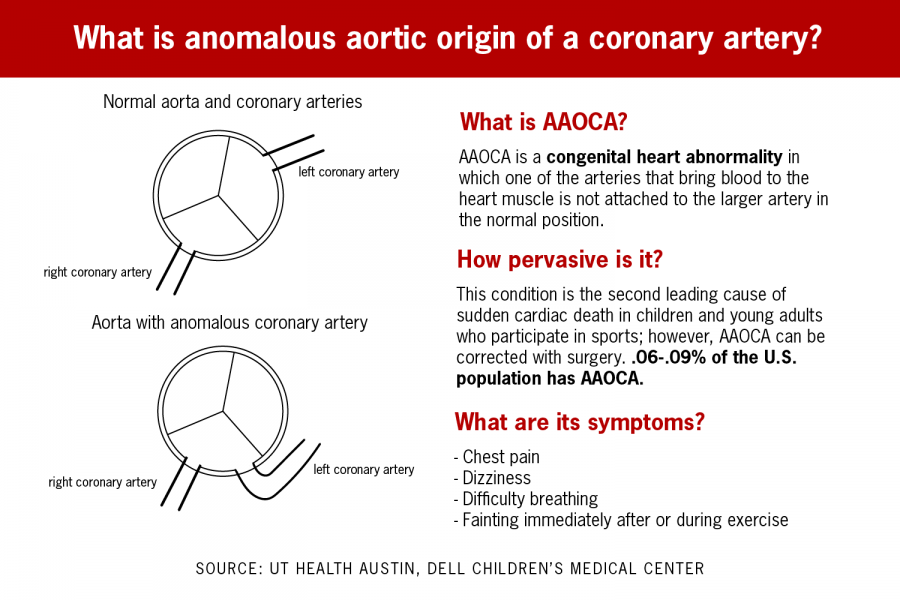UT Health Austin research to identify common questions about rare cardiac disease
April 21, 2021
UT researchers will begin studies to identify and answer questions about a rare heart defect that can trigger cardiac death during exercise or sports in young people next week. The disease has put families in a state of anxiety since the risk of death and treatment efficacy are currently unknown.
“The reality is when we see patients, and they say, ‘What should we do?’ we don’t have a clear answer,” said Carlos Mery, the principal investigator for the study.
Because of the disease’s rarity, the researchers at UT Health Austin and Dell Children’s Medical Center hope to better understand patient concerns to improve medical treatment. The Patient-Centered Outcomes Research Institute gave a $250,000 engagement award to UT and Dell Medical to research patient concerns regarding the disease.
Anomalous aortic origin of a coronary artery (AAOCA) is a rare cardiac disease that afflicts 0.6 to 0.9% of people in the United States, said Mery, a congenital cardiac surgeon in the Texas Center for Pediatric and Congenital Heart Disease program. Coronary arteries help the heart pump blood to the body, but children born with the anomalous disease have their coronary arteries connected incorrectly, which can cause chest pains or sudden cardiac death, Mery said.
Keren Hasbani, a pediatric cardiologist at Dell Children’s Medical Center and a co-investigator for the study, said exercise or sports can trigger sudden cardiac death because they push their hearts to the maximum.
Mery said doctors can perform open heart surgery to repair the heart, but this operation is risky.
“We need to go into the chest, we need to stop the heart and then we need to manipulate a coronary artery that’s probably about two milimeters in diameter,” Mery said. “We’re actually messing around with a coronary and moving it or cutting into it.”
Kate Taylor, a co-investigator for the study, said the study will conduct virtual interviews, focus groups and surveys to 125 patients. Patients and their families will be asked open-ended questions about their experiences with the disease and what aspects of the condition patients wish to know, such as long-term outcomes and whether or not the patient can exercise, she said.
“At the heart of this project is bringing (patients) in and really allowing us to hear them and hear things we may never hear about,” said Taylor, a clinical research specialist in the department of pediatrics.
Mery said the researchers hope the study will allow for a patient-centered research agenda that will guide health care providers to address questions that are important to patients and families.
“The three main things that we’re trying to get at is: what are the outcomes that are most meaningful to patients in the long term, what are the gaps in care and whether there’s particular different groups within that larger group of AAOCA that have different needs,” Mery said.












